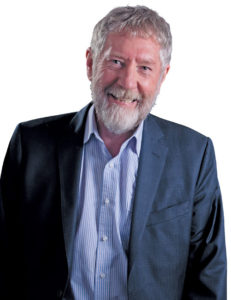“People with disabilities continue to fall through the cracks. From its launch, the NDIS provided hope for so many people for a life that was more inclusive. However, the challenge remains with too many missing out,” writes political columnist MICHAEL MOORE.
JUST how mean can the government be in dealing with people with a disability?

Debate in the Senate over the National Disability Insurance Scheme (NDIS) highlighted a wide range of flaws and challenges that need to be addressed.
Is the government streamlining an “improved governance” system to improve the lot of people with a disability? Or is it about efficiency and saving money?
The real vulnerability of the government is the underspend on the Budget by $4.6 billion! An underspend is helpful if the priority is a Budget into surplus. However, when people with disabilities are missing out – it is simply being mean spirited.
The sense of frustration of the non-government members was palpable throughout the debate. After all, this was a program that was introduced under a Labor government and left to the Liberal and Nationals Coalition government to implement. The title of the Bill emphasised the government’s goal, National Disability Insurance Scheme Amendment (Streamlined Governance) Bill 2019.
As acknowledged by Greens Senator Rachel Siewert, the government was attempting to solve the “governance frameworks that have created issues in the process of efficient and effective decision-making”. She acknowledged the motivation of this Bill as a remedy. However, it became clear throughout the debate that there was much to be remedied.
Example after example of failings were cited. Senator McCarthy used a moving example from a remote NT community to describe “a child with cerebral palsy sleeping on the concrete floor. They did not have a bed, not because their family didn’t think the child deserved a comfortable place to sleep but because they could not afford to buy the bed frame and mattress”.
She added: “A child with cerebral palsy needs a bed to sleep in; every child needs a bed to sleep in. But the NDIS would not let the family purchase a bed under their package. The package remains underspent.” Mean spirited!
Tasmanian Senator Bilyk concentrated on people with disabilities who were falling through the cracks. He heard at a public forum “families also talked about the amount of work they do getting medical reports to justify their claims. Filling in the paperwork and collating the reports is practically a full-time job. In some cases, these reports were second-guessed by people not qualified in medicine and, in other cases, they weren’t even read”.
Most speakers identified excessive bureaucracy and red tape. The very thing that the government’s Bill was attempting to address! Throughout the debate it was clear that issues in rural or remote communities for people with disabilities were so much greater than for those in the main cities.
Challenging for senators considering this Bill was the review by David Tune that had been commissioned by the government into the NDIS Act. The overlap of the Bill and the review proved frustrating for many. However, the goal was to move quickly to be more efficient in the hope of resolving some of the problems identified in the debate.
Senator Siewert suggested the need for change at the top. She started by identifying the Independent Advisory Council (IAC) Board as being “filled largely with former corporate CEOs from the banking and finance sector”.
She called for more “disabled people on the IAC Board of the NDIS, people with a lived experience who understand the complex nature of disability and who are committed to doing whatever it takes to ensure that every single participant has a positive experience, enabling them to access all the support and services they need to live a good life”.
It is already well known, and it was very clear in this debate, that people with disabilities continue to fall through the cracks. No system is perfect. From its launch, the NDIS provided hope for so many people for a life that was more inclusive. However, the challenge remains with too many missing out.
The way forward is a co-ordinated approach across all jurisdictions and with greater efforts to cross the political divide.
Who can be trusted?
In a world of spin and confusion, there’s never been a more important time to support independent journalism in Canberra.
If you trust our work online and want to enforce the power of independent voices, I invite you to make a small contribution.
Every dollar of support is invested back into our journalism to help keep citynews.com.au strong and free.
Thank you,
Ian Meikle, editor





Leave a Reply